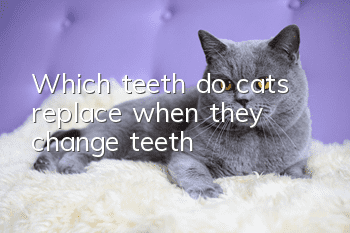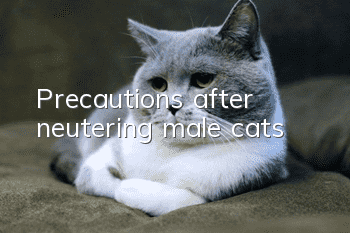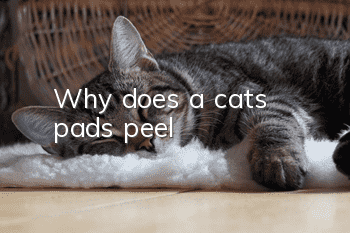Which teeth do cats replace when they change teeth?

Teeth that cats will replace when teething
1. Cats usually replace deciduous incisors and canines when teething. Usually, cats will replace the first, second, third, and fourth primary incisors with incisors when they are three to four months old, replace the fifth and sixth primary incisors with incisors, and replace the primary canines with canines when they are four to five months old. .
2. The growth and replacement of cat’s teeth are very regular. By observing the cat’s teeth, you can roughly estimate the cat’s age. Generally, cats that are three to four weeks old will have primary canine teeth (that is, two canines on the upper and lower jaws) and small incisors on the upper jaw. By the fifth week, all the primary teeth will have grown.
3. Starting from the fifth month after birth, cats begin to replace their canine teeth. At this time, when you open the cat’s mouth, you can often see that the gums of the cat’s canine teeth are slightly red. This means that new teeth are growing. signs. After a week or two, you will see four canine teeth on the cat's upper or lower jaw, that is, there are two teeth at the same canine position, one is slightly larger, and these are the newly grown teeth. As new teeth grow, the primary canine teeth are slowly loosened, fallen off, and spit out by the cat.
Precautions for cat teeth changing
1. When the cat is four or five months old, the director may have a loss of appetite during the teeth changing stage. At this time, on the one hand, Pay attention to the growth of teeth in the cat's mouth. On the other hand, provide it with easy-to-chew food to protect the new teeth.
2. In order to protect the cat’s teeth during the period of cat teeth changing, the owner should not feed the cat food that is too hard. The cat food can be soaked in warm water before feeding, and at the same time, it can be fed with some calcium supplements. Calcium.
3. When kittens change teeth, carefully check whether the deciduous teeth have fallen out. If not, the deciduous teeth will hinder the normal growth of the permanent teeth, causing the permanent teeth to become skewed, causing malocclusion and easy accumulation of food residues. and other phenomena. If the deciduous teeth have not fallen out, you should go to the hospital for help in extracting them.
- Why does a cat lick its own body like crazy?
- Can cats and people sleep together?
- What are the disadvantages of fold-eared cats?
- How to guide cats not to scratch furniture
- How to grow gills on a British shorthair cat? Three treasures for cats to grow gills! do you know?
- How much egg yolk does a cat eat at one time?
- How to tell the age of a Siamese cat? What are the ways to extend life?
- What does a cat eat that produces a lot of milk? What does a cat eat that produces a lot of milk
- Causes and prevention of cat skin diseases
- How to buy a Norwegian Forest Cat



